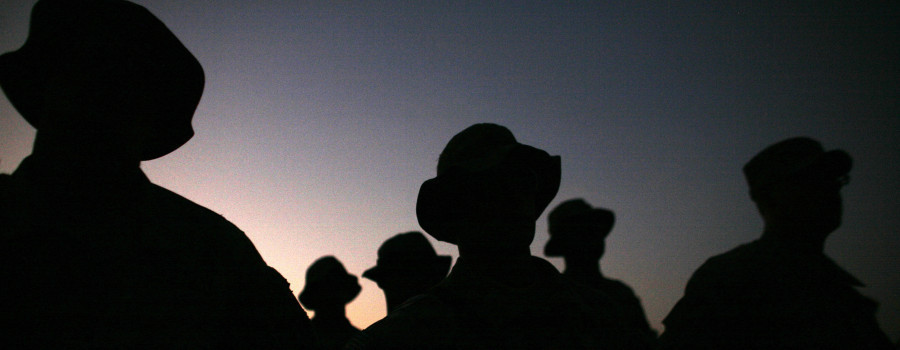 Nearly 70 soldiers in his 1,163-member battalion had tested positive for drugs: methamphetamine, cocaine and marijuana. Others were abusing prescription drugs. Troops were passing around a tape of a female lieutenant having sex with five soldiers from the unit. Seven soldiers in the brigade died from drug overdoses and traffic accidents when they returned to Fort Bliss, near El Paso, after their first deployment.
Nearly 70 soldiers in his 1,163-member battalion had tested positive for drugs: methamphetamine, cocaine and marijuana. Others were abusing prescription drugs. Troops were passing around a tape of a female lieutenant having sex with five soldiers from the unit. Seven soldiers in the brigade died from drug overdoses and traffic accidents when they returned to Fort Bliss, near El Paso, after their first deployment.
"The inmates were running the prison," Wilson said. What Wilson had to deal with, however, was hardly an isolated instance. With the U.S. drawdown in Iraq, the Army is finally confronting an epidemic of drug abuse and criminal behavior that many commanders acknowledge has been made worse because they'd largely ignored it during nearly a decade of wars on two fronts.
The Army concedes that it faces a mammoth problem.
A 350-page report issued in July after a 15-month investigation into the Army's rising suicide rate found that levels of illegal drug use and criminal activity have reached record highs, while the number of disciplinary actions and forced discharges were at record lows.
The result, the Army found, is that "drug and alcohol abuse is a significant health problem in the Army." Where the Army once rigidly enforced rules on drug use, it got sloppy in the rush to get soldiers ready for the battlefield, commanders say. Officers who once trained soldiers on everything from drug abuse to financial planning had only enough time to get their troops ready for battle.





 After threatening to sever ties with Scouting America and kick the youth group off military bases...
After threatening to sever ties with Scouting America and kick the youth group off military bases... President Trump on Friday directed federal agencies to “immediately cease” using Anthropic technology amid an escalating...
President Trump on Friday directed federal agencies to “immediately cease” using Anthropic technology amid an escalating...






























